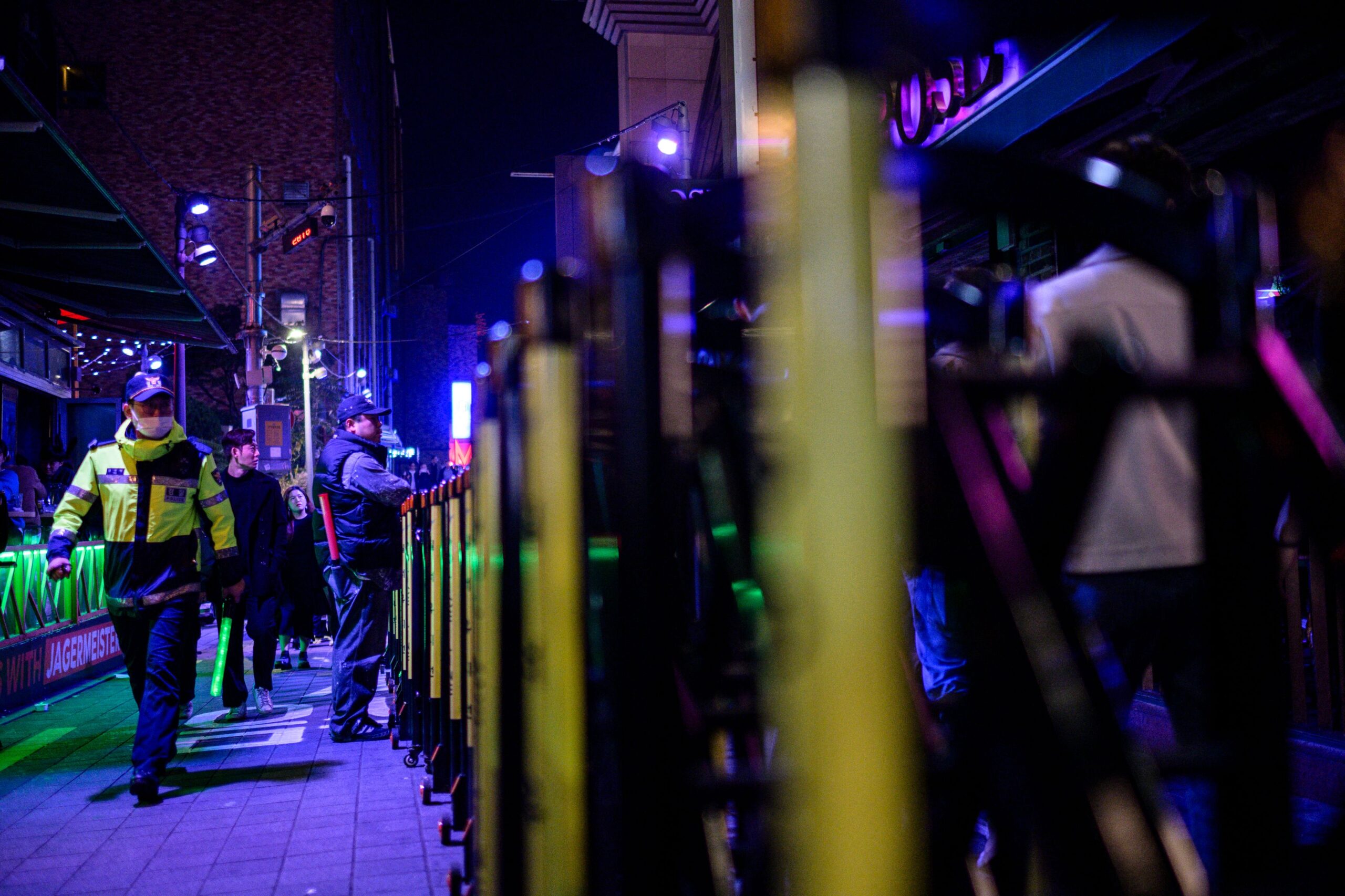Seemingly random violent attacks against strangers, such as stabbings, are becoming more frequent (albeit still rare overall) in South Korea, based on official data
This assessment was issued to clients of Dragonfly’s Security Intelligence & Analysis Service (SIAS) on 2 November 2023.
- The perpetrators usually target public places and do not appear to be ideologically motivated
- The authorities have increased security patrols and announced plans to improve police response capabilities, following two mass stabbings earlier this year
Violent attacks against strangers in South Korea appear to be on the rise. Over the past year, the authorities have become focused on preventing what they call ‘crimes of abnormal motives’. This includes two mass stabbings south of Seoul between 21 July and 4 August, in which the assailants injured 16 people and killed two. Since then, the police have confirmed hundreds of similar online threats and reportedly deployed additional security patrols in public spaces, such as malls and train stations. That said, violent criminality in South Korea remains rare by global standards; we are, therefore, keeping our countrywide general crime risk level at low.
Random attacks increasingly frequent
The two recent high-profile attacks against strangers seem to reflect a wider trend in South Korea. The two men behind attacks in July and August both targeted public spaces (a subway station and a shopping mall). They did not appear to have been ideologically motivated, based on police statements. Police are ascribing these to ‘abnormal motives’, a category of crime they created in 2022 for what is perceived as ‘random’ crimes that target strangers, usually in public spaces. At least two other similar stabbings were reported by local media outlets between July and August.
Official data suggest around three assaults of this nature occur daily in South Korea. According to a police report published in August and widely cited by international media outlets, there have been 925 such attacks in the first six months of 2023. The majority are assaults (554 incidents), but this also includes incidents of bodily harm or murder. Despite two mass stabbings earlier this year, most attacks appear to have involved one or a few victims; most recently, on 1 November, a man stabbed two police officers in Seoul.
The public is becoming concerned about the issue, polls suggest. According to a Gallup Korea poll carried out in August, 52% of South Koreans are ‘very worried’ about being targeted with random violent acts. While 30% said they were ‘somewhat worried’. A survey by the National Police Agency has also shown that public perception of safety has declined in 2022 compared with 2021. That said, South Korean crime incidents per capita are still low compared to other OECD countries. Foreign countries such as the UK and the US all advise of low crime rates generally, but especially against foreigners.
Signs of misogynist rhetoric and copycats
Recent stabbings will probably inspire more perpetrators to mount similar attacks. The authorities have previously warned of potential copycat incidents and said they have registered 315 online threats of attacks following the stabbings. This has resulted in the arrest of at least 115 people. Still, according to a report by the South Gyeonggi Provincial Police Agency, the province registered a 31% increase in emergency hospitalisations in the 40-day period following the first attack on 21 July. Although there has not been a confirmed correlation between these hospitalisations and the attacks, the local media has implied a direct link. An expert on the issue cited by a local media outlet described recent stabbings as exhibiting signs of copycat crimes.
Recent online threats of attacks have frequently been expressed in violently misogynistic terms. This is based on our analysis of the official police report documenting these; the majority has called for the mass murder of women in South Korea. The authorities also confirmed this in August. But while there has been a seeming rise in anti-feminist attitudes in the country in recent years, for now, this does not appear to have translated into more frequent misogynistic attacks. The police attributed recent stabbings to mental health issues. And a 2021 study examining such attacks has shown that 43.9% of cases seem to have stemmed from ‘general discontent’ towards society rather than being ideologically motivated.
Government boosting policing capabilities
The authorities are actively working on improving the police response capabilities and implementing measures to deter such crimes. Following the recent stabbings, the police increased the number of security patrols, and stop and search operations, in crowded places such as metro stations, according to local media reports. Most recently, the National Police Agency in late October announced plans to improve its capabilities to respond to such incidents. This includes investment into new equipment and training, and more surveillance cameras in streets and parks.
Image: Pedestrians walk past a policeman standing alert next to a barrier placed to create a two-way flow near an alleyway in Seoul on 28 October 2023. Photo by Antony Wallace / AFP via Getty Images.




